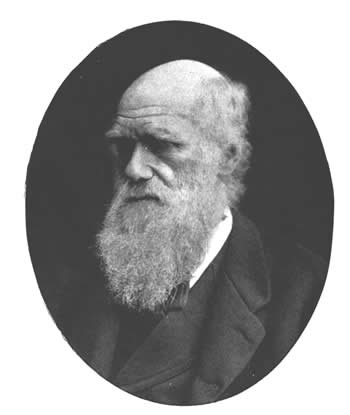Evolution Interruptus
Competing Views of Charles Darwin Converge at UCSB
A century and a half ago, Charles Darwin published On the Origin of Species, his seminal book that introduced the theories of common descent and natural selection. Since then, evolution has gained nearly universal acceptance in scientific circles. However, opposition to the theory outside of the scientific community, usually originating from religious groups, has also survived.

On Thursday, November 19, a group of evangelists gathered outside the Arbor at UCSB to hand out a new edition of Charles Darwin’s Origin that includes an introduction by evangelist minister and creationist Ray Comfort – best known for his association with Growing Pains actor Kirk Cameron – that criticizes Darwin’s theory of evolution. Meanwhile, a group of UCSB students also gathered outside the Arbor, handing out fliers declaring Comfort’s introduction is “bad science, bad history, and bad theology.” And completing a day focused on evolution, there was a screening in the Marine Science Research Building of the NOVA special Judgment Day: Intelligent Design On Trial, a documentary of the Kitzmiller vs. Dover Area School District lawsuit in which a federal judge ruled that intelligent design, the idea that species were created as they currently exist by an “intelligent agent,” was not science and therefore violated the First Amendment.
Earlier printings of Comfort’s edition were criticized for excluding four chapters from Darwin’s book and for going out to campuses a day earlier than he’d announced. But Comfort ultimately revised the edition to include the remaining chapters and the evangelists, who claimed not to be associated with UCSB, arrived on the announced date for a cordial Thursday gathering. Members of Science Understanding and Reason Enrichment (SURE), a secular student organization, passed out papers and bookmarks debunking Comfort’s claims alongside the distributors of Origin, both groups making sure students received both book and pamphlet.
Political science major and vice president of SURE Yan Ivaniya said, “We don’t want to censor other views. We want to provide counter information and to keep [people] from slandering Darwin and his works.” Chris Evelyn, a graduate student, said, “We’re here to promote the reading of Origin of Species and be available to answer any questions.” Mike Murphy, organizer of the evangelist group that handed out Origin, said he wants “creation scientists to sit down with evolution scientists and work on answers.” Another member of the evangelist group, who identified himself only as Andrew, said, “We want to give someone the opportunity to discern what they truly believe. It’s beautiful to see college students doing that.” Debates concerning the merits of evolution, Darwin’s alleged influence on Hitler, and religion versus science did spring up between the two sides but all discussions were polite, though inevitably ending with both parties agreeing to disagree.
In a brief Question and Answer session after the screening of Judgement Day, Dr. Todd Oakley, associate professor of macroevolutionary biology at UCSB, said Comfort’s introduction was an example of “Teach the Controversy,” a tactic adopted after the Dover ruling where anti-evolutionists urge schools to teach students that there is controversy among scientists about whether or not evolution actually occurred. Oakley asserted that no such controversy exists and referred to his blog Evolutionary Novelties where he writes “[Comfort’s introduction] contains the same old tired anti-evolutionist arguments that have not changed in hundreds of years, despite the fact the field of evolutionary biology has matured into a rich, detailed, predictive science that forms the core of modern understanding of all biology.”

Oakley’s specialty is the development of the eyes and vision and is particularly critical of Comfort’s citing the human eye as an example of “irreducible complexity” – the idea that some organs could not function without any one of their working parts and therefore could not have evolved naturally. “There is no evidence that ‘separate’ parts of the visual system cannot work separately, and in fact it is known that parts DO function separately.”(Oakley’s full post can be found here.)
During the Q & A, one student asked why, after all this time, were creationists still making news? Oakley, while cautiously admitting he wasn’t an expert, explained, “The media usually tries to give a balanced view of both sides, which is good. But sometimes, one side is right.”



